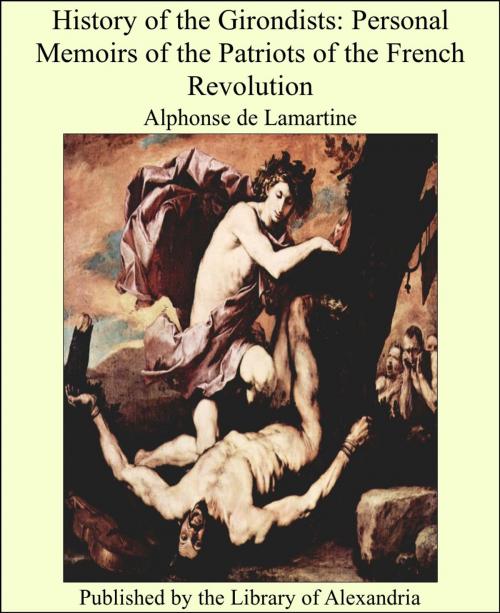History of the Girondists: Personal Memoirs of the Patriots of the French Revolution
Nonfiction, Religion & Spirituality, New Age, History, Fiction & Literature| Author: | Alphonse de Lamartine | ISBN: | 9781465535986 |
| Publisher: | Library of Alexandria | Publication: | March 8, 2015 |
| Imprint: | Language: | English |
| Author: | Alphonse de Lamartine |
| ISBN: | 9781465535986 |
| Publisher: | Library of Alexandria |
| Publication: | March 8, 2015 |
| Imprint: | |
| Language: | English |
I now undertake to write the history of a small party of men who, cast by Providence into the very centre of the greatest drama of modern times, comprise in themselves the ideas, the passions, the faults, the virtues of their epoch, and whose life and political acts forming, as we may say, the nucleus of the French Revolution, perished by the same blow which crushed the destinies of their country. This history, full of blood and tears, is full also of instruction for the people. Never, perhaps, were so many tragical events crowded into so short a space of time, never was the mysterious connexion which exists between deeds and their consequences developed with greater rapidity. Never did weaknesses more quickly engender faults,—faults crimes,—crimes punishment. That retributive justice which God has implanted in our very acts, as a conscience more sacred than the fatalism of the ancients[1], never manifested itself more unequivocally; never was the law of morality illustrated by a more ample testimony, or avenged more mercilessly. Thus the simple recital of these two years is the most luminous commentary of the whole Revolution; and blood, spilled like water, not only shrieks in accents of terror and pity, but gives, indeed, a lesson and an example to mankind. It is in this spirit I would indite this work. The impartiality of history is not that of a mirror, which merely reflects objects, it should be that of a judge who sees, listens, and decides. Annals are not history; in order to deserve that appellation it requires a conviction; for it becomes, in after times, that of the human race. Recital animated by the imagination, weighed and judged by wisdom,—such is history as the ancients understood it; and of history conceived and produced in such a spirit, I would, under the Divine guidance, leave a fragment to my country
I now undertake to write the history of a small party of men who, cast by Providence into the very centre of the greatest drama of modern times, comprise in themselves the ideas, the passions, the faults, the virtues of their epoch, and whose life and political acts forming, as we may say, the nucleus of the French Revolution, perished by the same blow which crushed the destinies of their country. This history, full of blood and tears, is full also of instruction for the people. Never, perhaps, were so many tragical events crowded into so short a space of time, never was the mysterious connexion which exists between deeds and their consequences developed with greater rapidity. Never did weaknesses more quickly engender faults,—faults crimes,—crimes punishment. That retributive justice which God has implanted in our very acts, as a conscience more sacred than the fatalism of the ancients[1], never manifested itself more unequivocally; never was the law of morality illustrated by a more ample testimony, or avenged more mercilessly. Thus the simple recital of these two years is the most luminous commentary of the whole Revolution; and blood, spilled like water, not only shrieks in accents of terror and pity, but gives, indeed, a lesson and an example to mankind. It is in this spirit I would indite this work. The impartiality of history is not that of a mirror, which merely reflects objects, it should be that of a judge who sees, listens, and decides. Annals are not history; in order to deserve that appellation it requires a conviction; for it becomes, in after times, that of the human race. Recital animated by the imagination, weighed and judged by wisdom,—such is history as the ancients understood it; and of history conceived and produced in such a spirit, I would, under the Divine guidance, leave a fragment to my country















